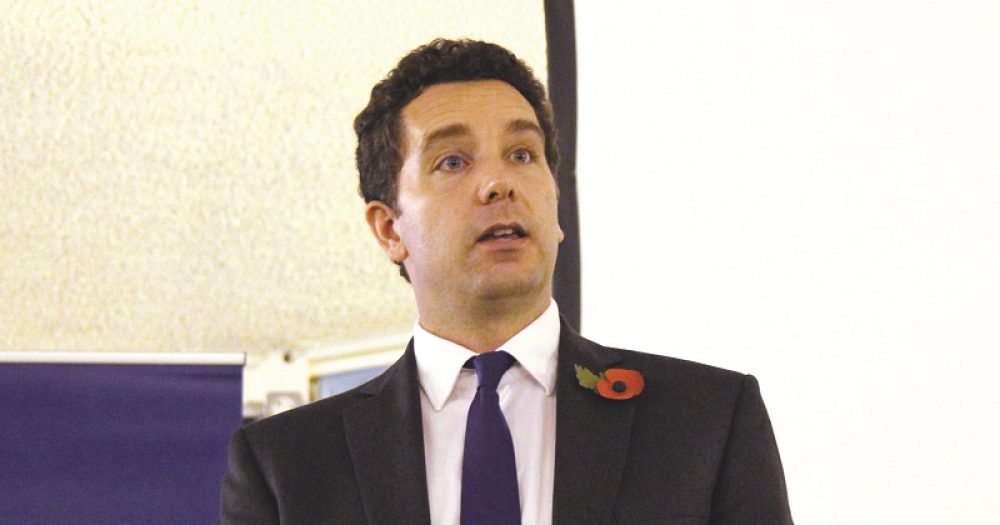The government has confirmed today it is still aiming to fund schools under a new national funding formula from 2017, indicating for the first time the new education secretary Justine Greening’s appetite to plough ahead with the controversial funding overhaul as planned.
Edward Timpson (pictured above), the newly-reappointed children’s minister, has said today the government “remains committed” to introducing the national funding formula, which aims to address wide gaps in school funding between different geographical areas, from the 2017/18 academic year.
It is the department’s first public announcement supporting delivery of the formula by 2017 under the leadership of Greening, and comes despite fears for the future of the policy following the political upheaval after Britain’s vote to leave the European Union and a delay to the publication of findings from the first consultation on the formula.
However sources told Schools Week the government could stop short of implementing the full formula in 2017/18, instead opting for a partial roll-out. Schools Week understands the government is preparing to announce the full timeframe for the formula’s implementation later this week.
Responding on behalf of Greening to a written question from the Labour MP and former shadow business secretary Chuka Umunna (right), Timpson said the Department for Education (DfE) had received “a high number of responses” to the first stage of the consultation, which focused on the “principles and building blocks” of the formula.

Timpson said the findings would inform detailed proposals, as part of a second consultation which would be put forward later this year, adding that ministers had to allow “appropriate time to consider what would be significant reforms” but remained “committed to introducing the formula from 2017/18 so that schools can start to benefit from fairer funding as soon as possible”.
But Natalie Perera, a former DfE adviser who is now executive director at the Education Policy Institute, said she “remained concerned” about the lead-in time for the second consultation and the “potential regulatory changes required”.
She also speculated that the language used in Timpson’s answer left room for the government to renege on its commitment.
However she said: “Condensing consultation periods and putting pressure on local authorities to agree local school budgets within a much shorter time frame are some ways in which the DfE might fast-track this.
“It also depends how you interpret ‘remain committed to’. They are not saying they will.”
Schools Week has also been told the government could get around concerns over the short time it has to consult on and implement the formula by stopping short of full implementation in 2017/18, although it is not yet clear what part-implementation would look like at that point.
The Institute for Fiscal Studies has warned the new formula could create “significant numbers of winners and losers”, with well-funded schools in inner-London potentially facing the biggest losses.
But former education secretary Nicky Morgan, when announcing proposals to bring in the new national formula, said it will be the “the biggest step towards fairer funding in over a decade – ensuring that pupils get funding that genuinely matches their need”.








Your thoughts